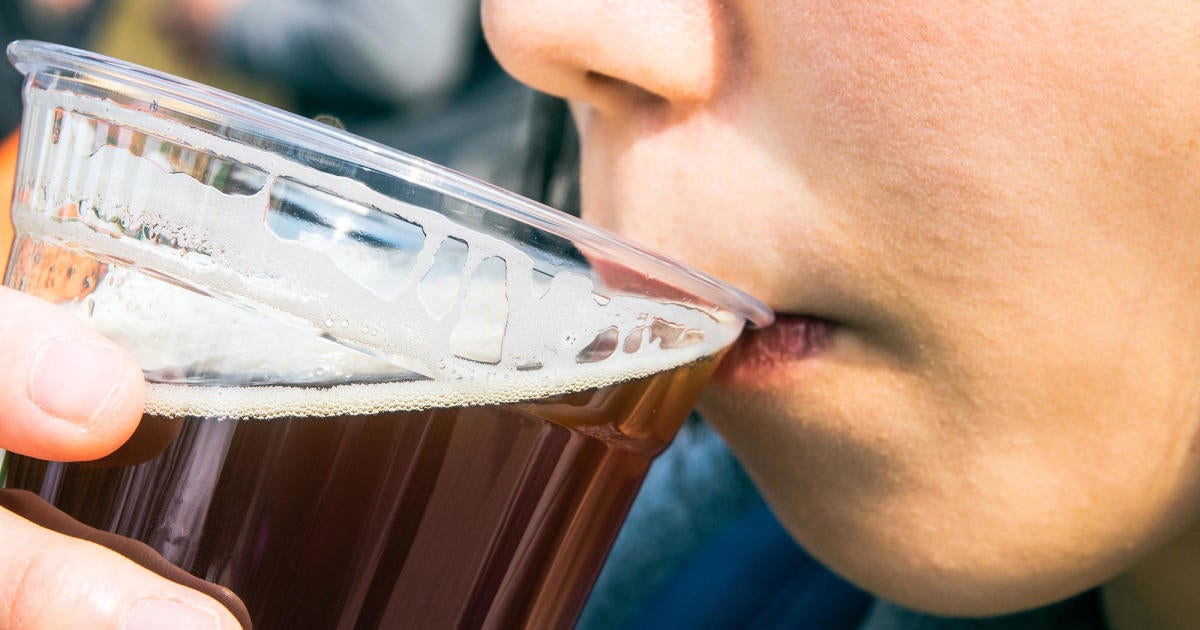Home Drinking: A Dangerous Prelude to Young Adult Alcohol Abuse
In recent years, the normalization of alcohol consumption at home has raised significant concerns among health experts and parents alike. A recent study suggests that allowing teenagers to consume alcohol in the safety of their own homes could dramatically heighten the risk of heavy drinking as they transition into adulthood. This alarming trend prompts us to evaluate the long-term consequences of what may seem like a harmless practice.
The Growing Trend of Home Drinking
As societal attitudes towards alcohol evolve, the idea of permitting teenagers to drink at home has gained traction. Many parents believe that introducing their children to alcohol in a controlled environment will help them develop a healthy relationship with drinking. However, research indicates that this approach may do more harm than good, possibly laying the groundwork for future alcohol abuse.
According to the study published in a prominent health journal, teenagers who are allowed to drink at home are more likely to engage in heavy drinking behavior in their twenties. The research highlights that exposure to alcohol during formative years can alter neurological development and increase the likelihood of addiction. With the brain still developing well into a person’s twenties, early alcohol consumption can have profound and lasting effects.
The Science Behind Alcohol Consumption
Understanding the science behind alcohol consumption is crucial in addressing the issue of home drinking. The adolescent brain is particularly vulnerable to the effects of alcohol. Some key points to consider include:
- Neurological Development: The prefrontal cortex, responsible for decision-making and impulse control, is not fully developed in teenagers. Alcohol can impair this development, leading to poor choices regarding drinking in the future.
- Genetic Factors: Genetics play a significant role in how individuals process alcohol. Those with a family history of alcohol abuse may be at a higher risk of developing similar patterns.
- Peer Influence: Adolescents are heavily influenced by their peers. If drinking at home is perceived as acceptable, they may feel compelled to drink more or experiment with alcohol outside the home.
The Role of Parental Guidance
Parental attitudes towards alcohol consumption can significantly impact a teenager’s behavior. When parents model responsible drinking behaviors and set clear boundaries, they can help their children develop healthier attitudes toward alcohol. However, when parents permit home drinking without restrictions, they may inadvertently send a message that drinking is acceptable at any age.
Experts recommend that parents engage in open conversations about alcohol, discussing its risks and the importance of moderation. Here are some strategies for promoting responsible drinking habits:
- Open Dialogue: Encourage discussions about alcohol and its effects. Address any misconceptions and provide factual information.
- Set Boundaries: Establish clear rules around alcohol consumption at home, emphasizing moderation and safety.
- Model Responsible Behavior: Demonstrate healthy drinking habits and show your children how to enjoy alcohol responsibly.
- Educate on Risks: Inform your teenager about the dangers of alcohol abuse, including addiction, health risks, and the impact on personal relationships.
Long-Term Consequences of Home Drinking
The consequences of home drinking extend far beyond the teenage years. Studies indicate that early exposure to alcohol can lead to a myriad of issues in adulthood, including:
- Increased Risk of Addiction: Early drinking can heighten the likelihood of developing alcohol dependency later in life.
- Academic Underachievement: Young adults who drank during their teenage years are more likely to perform poorly academically, which can limit career opportunities.
- Health Complications: Long-term alcohol abuse can lead to chronic health issues, including liver disease, cardiovascular problems, and mental health disorders.
- Relationship Strain: Alcohol abuse can negatively impact personal relationships, leading to isolation and conflict within families and friendships.
Alternative Approaches to Alcohol Education
Instead of allowing home drinking, parents and communities should focus on evidence-based approaches to alcohol education. Here are some effective alternatives:
- Alcohol Education Programs: Schools and community organizations can offer programs that educate teens about the risks associated with alcohol use and the importance of making informed choices.
- Peer Support Groups: Establishing peer-led support groups can provide teenagers with a safe space to discuss their experiences and feelings about alcohol.
- Promote Healthy Activities: Encourage participation in extracurricular activities, sports, and hobbies that do not involve alcohol, helping to foster a sense of community and belonging.
Conclusion: A Call to Action
As a society, we must recognize that home drinking is not just a benign practice; it is a potential gateway to serious alcohol abuse in young adulthood. Parents, educators, and community leaders must work together to foster environments that promote healthy choices and responsible behaviors regarding alcohol. By prioritizing education, communication, and support, we can mitigate the risks associated with early alcohol consumption and pave the way for a healthier future for our youth.
In summary, the implications of allowing teenagers to drink at home extend far beyond the immediate context. The evidence is clear: home drinking can lead to dangerous patterns of alcohol use in adulthood. It is time for us to reassess our approach and take proactive steps to ensure the well-being of our youth.
See more WebMD Network



